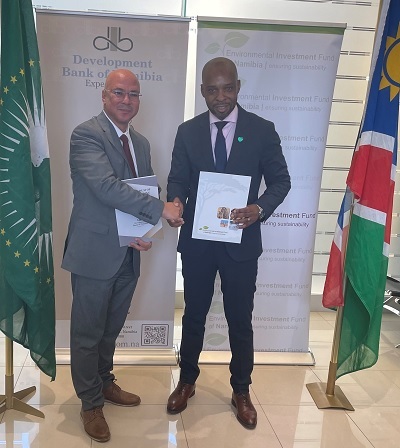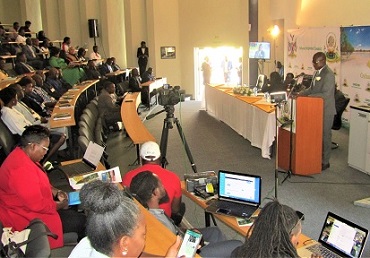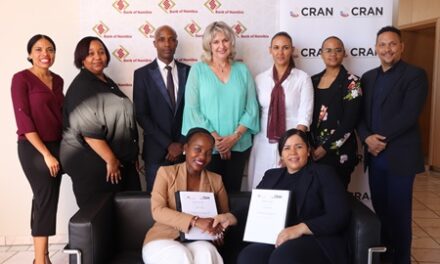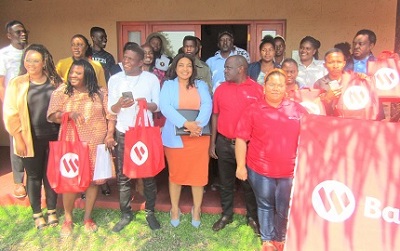
In a significant step towards enhancing Namibia’s access to climate finance, the Environmental Investment Fund of Namibia (EIF) and the Development Bank of Namibia (DBN) have signed a Memorandum of Understanding (MoU) to collaborate on the implementation of the “Accreditation of Direct Access Entities in Namibia (NAM-RS-006)” project.
The MoU was signed on 22 August 2024 by Mr. Benedict Libanda, Chief Executive Officer of the Environmental Investment Fund of Namibia, and Dr. John Steytler, Chief Executive Officer of the Development Bank of Namibia, in Windhoek.
On the 24th March 2023, the GCF approved the Readiness Proposal for the Republic of Namibia titled: “Support for accreditation of direct access entities in Namibia (NAM-RS-006)”.
The Readiness and Preparatory Support programme objective is to increase Namibia’s access to climate finance for achievement of its National Determined Contributions (NDC) ambition through strengthening capacities of local institutions that can serve as Direct Access Entities (DAEs) for Green Climate Fund and enhancing country ownership.
In light of this, the partnership between EIF and DBN is poised to strengthen the capacity of Namibian institutions to access international climate finance directly.
The NAM-RS-006 project aims to support the accreditation of Namibian entities as direct access entities under global climate funds, thereby enhancing the country’s ability to finance and implement critical climate change adaptation and mitigation projects.
Speaking at the signing ceremony, Mr. Libanda emphasized the importance of this collaboration, stating, “This partnership aims to address challenges head-on by jointly developing and implementing projects that will not only help us adapt to the changing climate but also mitigate its impacts.
“Through this MoU, the EIF and DBN will work together to raise the necessary green funding, with a particular focus on securing grants that will support impactful projects across the country.”
Dr. Steytler echoed these sentiments, highlighting the strategic alignment between the two institutions.
“The Development Bank of Namibia is dedicated to fostering economic growth and development in Namibia,” he said.
“Our partnership with EIF through this MoU will enable us to play a key role in supporting the accreditation of direct access entities, which is essential for unlocking much-needed climate finance to address the pressing environmental challenges our country faces.”
The MoU outlines a framework for cooperation between EIF and DBN, including joint efforts in capacity building, knowledge sharing, and technical assistance.
The collaboration is expected to streamline the accreditation process for Namibian entities, positioning them to access funding from international climate funds, such as the Green Climate Fund (GCF) and the Adaptation Fund.
The agreement states that a Project Steering Committee will be established to provide overarching policy guidance and oversight on the overall project implementation.
Both parties also agreed to establish a partnership forum aimed at fostering collaboration among entities and partners for the exchange of information pertaining to emerging issues in innovative information systems and instruments for enhanced climate finance programming.
The overarching goal of this forum is to advance climate finance programming at both national and subnational levels.
Both institutions are committed to ensuring the success of the NAM-RS-006 project and believe that their combined efforts will significantly contribute to Namibia’s long-term climate resilience and sustainable development.
In the photo: The top officials of Environmental Investment Fund officials and DBN signing their MoU.






